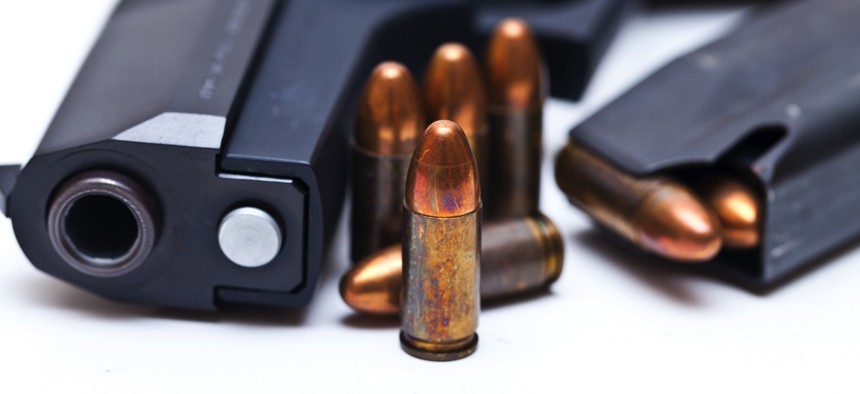Judge OKs Seattle’s Controversial New Guns and Ammo Tax

defpicture / Shutterstock.com

Connecting state and local government leaders
But the legal fight will continue.
When the Seattle City Council was considering legislation this summer that would impose new taxes on gun and ammunition purchases, gun rights supporters vowed that they would challenge Washington state’s largest city in court if the proposal became law.
“We've already sued the city of Seattle in the past,” Alan Gottlieb, the executive vice president of the Bellevue, Washington-based Second Amendment Foundation, told Route Fifty in an interview at the time. “We'll just do it again. They make it easy for us.”
In August, after the Seattle City Council unanimously approved the legislation and Mayor Ed Murray OK’d it, a National Rifle Association-led coalition, including the Second Amendment Foundation, two Seattle gun stores and two local gun owners, sued the city over the tax, which would amount to $25 per gun and 2 or 5 cents per round of ammunition depending on the ammunition type. Revenue from the tax would fund gun violence research and education.
But on Tuesday, a ruling from King County Superior Court Judge Palmer Robinson dismissed the lawsuit, which will allow the new law to take effect in January.
“We established the gun violence tax as a legitimate and appropriate way to raise revenue for gun safety research and prevention programs,” Seattle City Council President Tim Burgess, who sponsored the legislation, said in a statement following the ruling. “The NRA and its allies always oppose these common sense steps to shine light on the gun violence epidemic. They have blocked funding for basic gun safety research at the federal level for decades. But in Seattle it is different. Judge Robinson saw through the NRA’s distorted efforts to put gun industry profits ahead of public safety.”
The NRA plans to appeal Robinson’s ruling and as The Seattle Times reported Tuesday, a lawyer for the plaintiffs “called the ordinance a regulatory fee masquerading as a tax and accused city officials of trying to sneak around state law.”
Murray praised Robinson’s ruling.
In a statement, the mayor said: “For too long, we have had insufficient research and data on gun violence in Seattle to help guide our response. We will now have critical funding to advance our work on gun violence research and prevention.”
In the absence of congressional action to strengthen gun control measures, many municipal governments have taken steps to push gun safety measures within their own jurisdictions. In October, city lawmakers in Los Angeles and San Francisco green-lighted separate gun-related legislation.
Los Angeles now mandates that handguns be locked up or disabled with a trigger lock when not in use. In San Francisco, which saw its last gun store close this fall, lawmakers approved legislation to mandate that gun and ammunition sales be videotaped and shared with the San Francisco Police Department.
“Congress continues to fail the American public when it comes to gun safety laws, so it is incumbent on local jurisdictions such as the City of San Francisco to actively promote legislation to protect the public safety of our residents,” San Francisco Board of Supervisors Mark Farrell said in a statement following the legislative action in his city in October.
Michael Grass is Executive Editor of Government Executive's Route Fifty.

NEXT STORY: New Census Estimates Give North Carolina Reasons to Tout Its Growth





